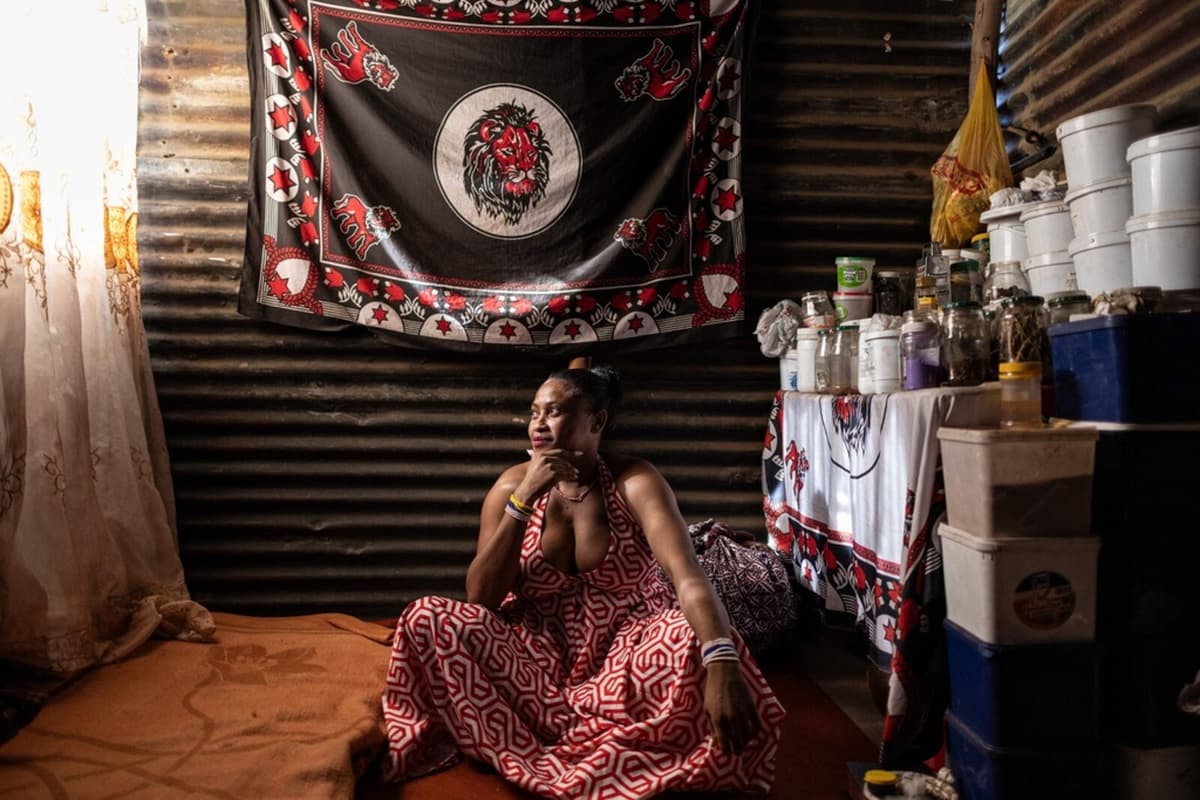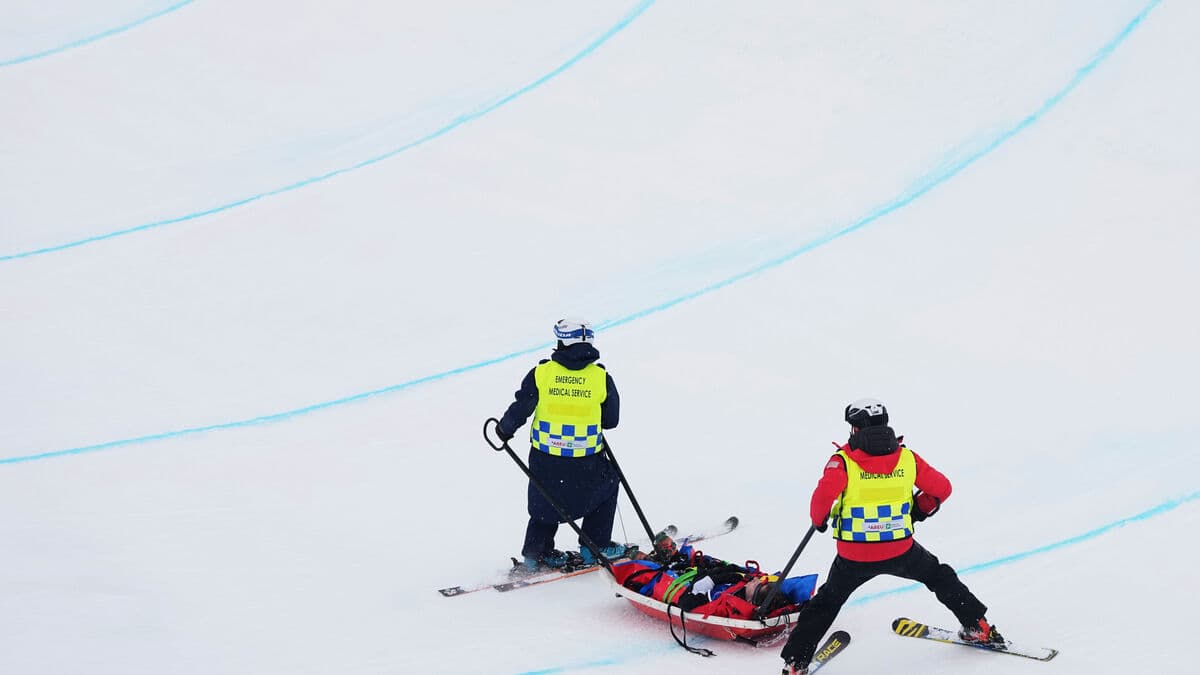Lieketseng Lucia Tjatji sits on the floor in a shed on the outskirts of the capital Maseru. On the metal wall behind her hangs a black curtain adorned with a lion motif. On a table to her left stand numerous jars and buckets containing roots, powder, dried herbs, and more.
Tjatji calls herself a sangoma – a highly respected healer in many cultures in southern Africa who relies on spiritual teachings and disputed natural remedies.
I'm a traditional doctor or a witch doctor, says the 34-year-old to the news agency AFP, and testifies to a customer base that has grown rapidly in a short time, as HIV-infected people are no longer receiving treatment.
Every fourth Lesothian
Lesotho is one of the poorest countries in the world, and about a quarter of its inhabitants are infected with HIV. The country has received external aid for a long time to be able to treat them and limit the spread.
The USA has been the largest donor and has contributed approximately nine billion kronor to a crisis plan to combat the spread of HIV since 2016. When the new US government stopped the global aid earlier this year, the work in Lesotho came to a sudden halt, and only a smaller part of it has been able to resume.
Five years ago, the efforts there were notable: 90 percent of all infected people had received a diagnosis and preventive medication that had shown results.
Today, stocks of antiretroviral medication are dwindling – as in many African countries. An infected Lesothian receives medication prescribed for shorter periods at a time.
Aid workers and researchers fear that the work that has been done has been in vain. Without treatment, infected people also run a greater risk of getting meningitis, pneumonia, or tuberculosis.
Been around for a long time
It's no wonder, then, that the desperate and sick turn to a system that has existed for many decades, says sangoma Mpho Roberta Masondo, who leads a South Africa-based industry organization.
Traditional healing plays a crucial role in holistic health and community well-being, she says, but adds that antiretroviral medication is "the most effective way" to combat HIV.
Lieketseng Lucia Tjatji in Maseru is a sangoma, but also HIV-infected herself. She has been regularly treated with preventive medication since 2003, when she was eleven-twelve years old. She admits that the alternative methods she offers are condemned by the medical world, but notes that she soon won't have much else to put her hope in:
I don't want to die. I'm so young and I don't want to die.
Advertisement
The small mountain kingdom of Lesotho, the size of Dalarna, is completely surrounded by South Africa.
The kingdom has approximately 2.3 million inhabitants. King Letsie III is the head of state, and Prime Minister Sam Matekane is the head of government.
After gaining independence from the United Kingdom in 1966, the country experienced a long period of coups, political conflicts, and poverty, but in the early 2000s, it got a democratically elected government.
Economically, Lesotho is dependent on South Africa. Many inhabitants work as guest workers in, among other things, the South African mining industry. Lesotho also exports water to South Africa. In recent years, diamond mining has increased in importance for the country's economy.
Poverty is widespread, and many inhabitants are dependent on food aid. Lesotho is also one of the countries most affected by HIV, with nearly a quarter of the population infected.
GDP per capita was $916 in 2023. In early 2025, the country adopted a state budget with expenditures of approximately 1.2 billion kronor for the year, which is about one-thousandth compared to Sweden.
Source: Landguiden/UI.






